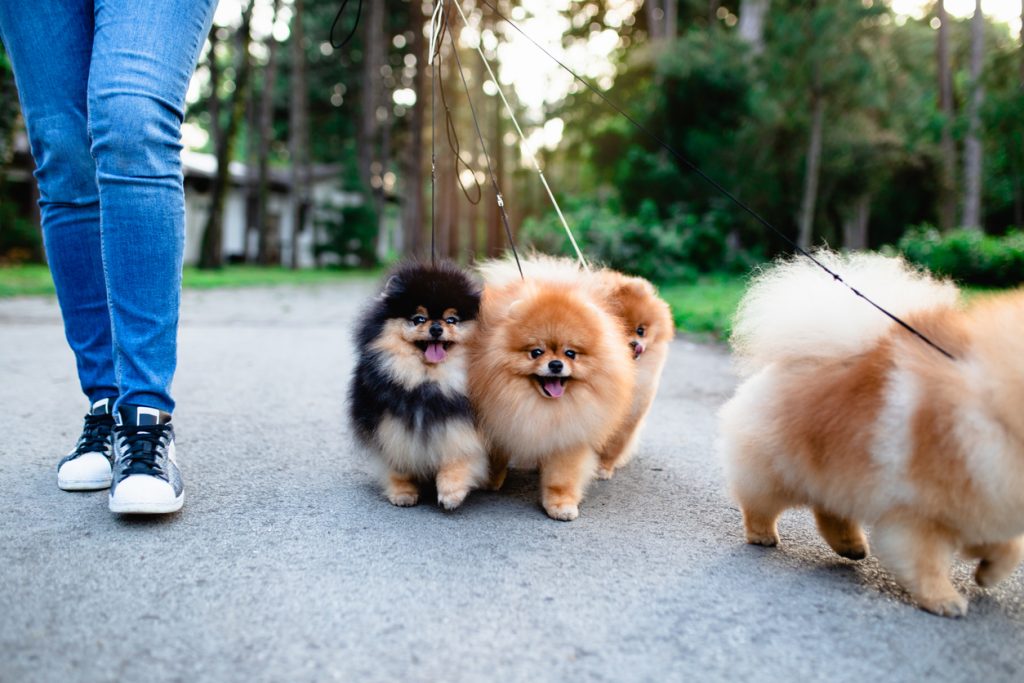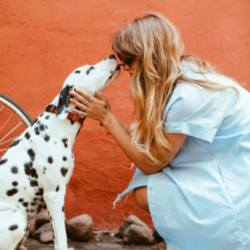
While choosing the type of dog that you would like to bring home, it is important that you consider the Advantages that small dog breeds offer. Once you fully understand the inheritances of each dog breed, you will be better able to decide which is perfect for you.
All dogs have four essential tags; a collar, an id tag, an accessories tag, and a bed tag. Each of these tags will contain important information about the owning dog. The color of the collar and the color of the id tag can typically indicate the gender of the dog and other important traits. An accessories tag can contain medical information for your dog that includes allergies, veterinary vaccinations, and if the dog is housebroken. A bed tag is basically an individualized way to say “I’m the best dog in the world” and is a Mix-Breed indicate if the dog is good with children, and if so, which is the dog type, and other breed details. Knowing the traits of each dog will significantly help in training.
Small dog breeds can generally be purchased from a shelter, a rescue organization, or a private owner. There are a wide variety of small dog breeds to choose from, and at the minute these include: Affenpinscher, American Cocker Spaniel, American Eskimo Dog, Chinese Crested, Chinese Shar-Pei, Cavanese, Dachshund, English Toy Spaniel, French, English Toy or German Shepherd, Golden Retriever, Gordon Setter,Irish Water Spaniel, Jack Russell Terrier, King Charles Cavalier Spaniel, Labrador Retriever, Manchester Terrier, Miniature Pinscher, Miniature Schnauzer, Miniature Soft Coated Wheaten Terrier, Neapolitan Mastiff, Norfolk Terrier, Norwich Terrier, Old English Sheepdog, Rottweiler, Shih Tzu, Tervuren, and Veterinary Cat Breeder.
Small dogs are certainly spirited, and make excellent watchdogs. They are good with children, but because they are so small, the younger children need to be more careful and slow to handle one.
Small dogs are also fairly fragile. They can be easily injured when dropped or stepped on, and if their bone or limbs become broken it can take even longer for them to heal. This is why so many owners purchase larger dogs, because a larger dog is usually better suited for children.
A tip I got from a recovery homes director who uses dogs to keep their clients content is children love to play with dogs! An injured dog will often instinctively try to bite the child to protect themselves. These injuries can be difficult to treat, even death being the worst outcome. It is fairly common for a child to be bitten by a dog they own.
Finally, the purchase of a puppy or kitten is often not an impulse buy. They are carefully planned on how to introduce the new friend to the children of the family. This is important to do because the puppy or kitten needs to become familiar with all members of the household. Of course there are exceptions, and everyone wants to have a dog-but maybe that is not what everyone had in mind when they decided to get a new pet.
Generally, breeders will sell their puppy or kitten puppies for a certain amount of money. That price may vary, but the breeder will take a supply. That price will cover food, food and trips to the vet for the purchase. After the supply has been reached, the remaining cost will cover the cost of caring for the pet as well as taking it out for walks, fostering, trips to the vet for necessary shots and medications, and any other pet supplies the family may require.
When you bring your new pet home, keep a small towel or small blanket in your carrier and bring it home with you. The puppy or kitten will not be accustomed with strange scents or environment so it may whine and cry. When it is tired, it will sleep. Keep the small towel in your carrier and rub its soft fur as much as possible.
Be prepared, because the puppy or kitten is not going to treat you like one would another. It will snap and bite and scratch. It is the animal’s way of getting used to you. Before you snap, you must assume it is play time. While you think you are just going to casual, the animal is actually rehearsing behaviors that will serve as a homework for future. If you do not assume this is a good time to interact, you and the animal may wind up with problems. For example, you will be surprised when the puppy or kitten finally snap at you when you reach for it.
Even though the animal is reacting perfectly lunatic, there is no reason to panic. Stay calm and continue to monitor the animal. If it is showing aggression, you should loudly say “No,” and act like you are going to hit it, or its teeth will start snapping.

